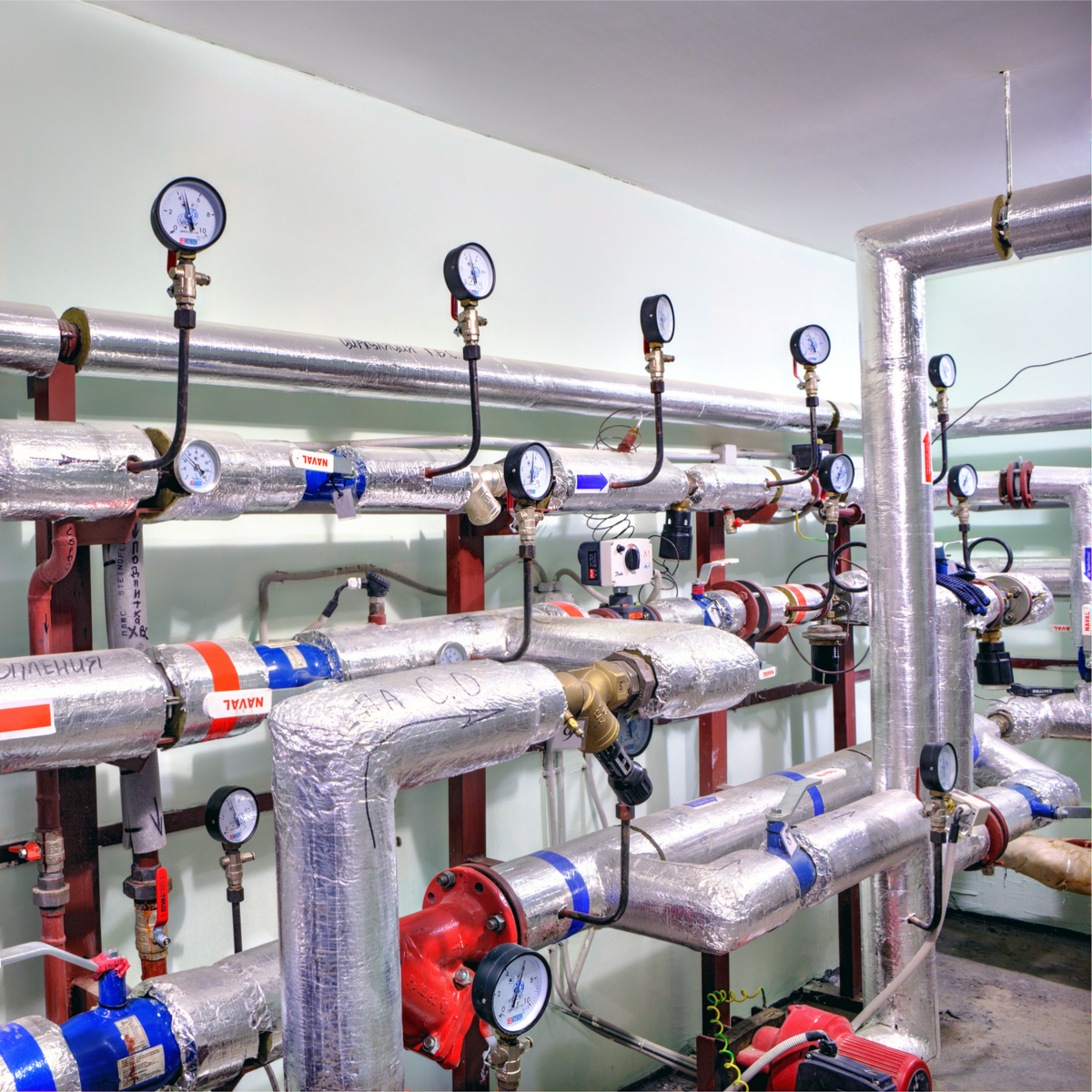
If you’ve ever turned the handle on for hot water, just to see that it never warmed up, then you know what it’s like to realize your water heater has failed. At home, this can be a major inconvenience, but you can have it remedied quickly. For your facility, losing hot water could be a much bigger issue. Having redundant boilers ensures that if one goes down, your facility will still have hot water. Installing multiple boilers is typically more expensive than having one larger boiler, but having redundant boilers gives your facility some extra benefits that you may not have thought of.
No Loss of Production
When your facility relies on one boiler, losing that boiler means losing all of your hot water too. If hot water or steam is a crucial part of your facility’s operation, this could mean a shutdown and loss of production. Redundant boilers, even if they don’t have 100% redundant capacity, can provide enough hot water or steam to keep production going.
Related: Diagnosing the Most Common Boiler Problems
When something causes production to slip, workers often need to work overtime in order to make up for lost production. A loss of hot water can also cause materials that were part of the process to be lost. Either one of these issues can really compound the high expenses associated with the loss of a boiler. Preventing this loss of production is enough to justify boiler redundancy.
Increased Efficiency
Boilers typically operate at peak efficiency over a small band of heating loads. Usually, this band corresponds to the upper end of what a boiler can put out. The heating load in a facility can fluctuate with the time of day, time of year, and processes going on in the facility. Because of this, when one solitary boiler is used, it operates (most of the time) at a part load condition where its efficiency is lower. This results in more fuel being consumed and a higher energy bill.
Having multiple boilers not only provides redundancy, but can also improve the efficiency of the hot water system. The redundant boilers can be installed in a cascade arrangement where they are not all on at the same time, but turn on one-by-one. This means that the boilers are staged and turn on as more hot water is needed. If only a small amount of hot water is needed, then only one boiler might be operating. As the demand for hot water goes up, a second boiler may come online. Each of these boilers will be operating closer to peak efficiency, especially compared to a single boiler operating at that part load condition. The overall average efficiency of a system like this tends to be much higher than a solitary boiler.
Easier Maintenance
Having redundant boilers means that taking a boiler out of operation for service won’t reduce your facility’s hot water supply. Redundant boilers greatly reduce the stress of maintenance and the pressure to get a boiler back online quickly. Repairs can be done right the first time and inspections can be more thorough. The average time between failures is typically increased when redundant boilers are installed because maintenance is more effective.
Related: Our Boiler Maintenance Checklist
Prevents Catastrophic Failure
Boilers are often used to heat facilities in the winter time. When a single boiler is installed, and is providing heating throughout the facility, the whole facility will lose its heat source if it is knocked out. Not only is this uncomfortable, a failure like this can become extremely expensive if the temperature falls low enough for pipes to start bursting. Redundant boilers ensure that hot water can still be produced, even if a boiler is taken out of service.
Don’t let your facility be caught off guard. Failures happen, so have a plan. Redundant boilers keep your facility up and running, no matter what happens. For help with acquiring and installing a new boiler, contact the experts at Tate Engineering. And don’t wait, it’s getting cold out there!
